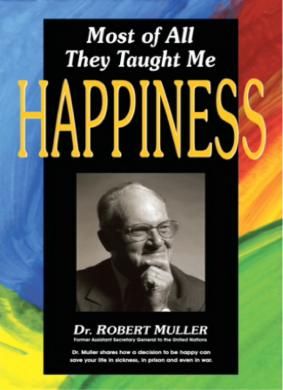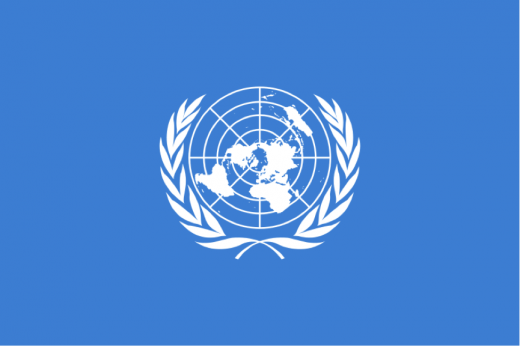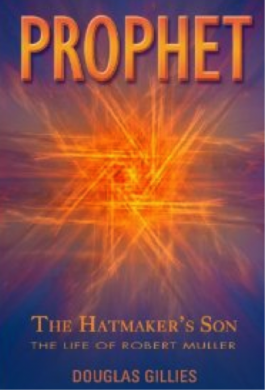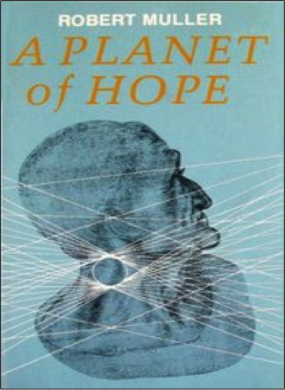Robert Muller believed we could use our strengths as human beings to build a better world.
As Assistant General Secretary of the United Nations, he did all in his power to make this happen. He believed it was important for the world’s leaders to focus on helping to create happiness.
Working mainly behind the scenes, he played an integral part in creating the UN World Food Programme, the UN Development Corporation and the first Environmental Conference in Stockholm, Sweden in 1972.
Robert worked as a lawyer, economist and diplomat, but his approach was more like a poet. He was considered to be one of key prophets of hope in the United Nations.
After working with the organisation for 40 years, he then launched into another career. Looking ahead, Robert embarked on what he called:
A Re-fire-ment not a Re-tire-ment.
He became the Chancellor Emeritus of the United Nation’s University for Peace in Costa Rica.
As part of this venture, he created a ‘World Core Curriculum’. This led to establishing many Robert Muller Schools around the world and he became known as the ‘Father of Global Education’.
Robert was born in Belgium in 1923 and grew up in the Alsace-Lorraine region in France. He soon became aware of the artificial differences created by borders.
Interviewing his grandparents, he found they had been known as French, German, French, German and French again. All without leaving their village.
Looking back at family albums, he saw different generations of his family dressed in the soldier’s uniforms of different nations. He dreamed of creating a world where people lived in peace.
Robert was strongly influenced by his grandfather. Writing in Most Of All, They Taught Me Happiness, he talks about how his grandfather taught him to count his blessings. He writes:
My grandfather was old, smiling, gentle, and in a constant state of love with me. He told me stories that were close to my world: the world of nature, animals, and legends.
Through his stories he transmitted to me the wisdom he had acquired in his life. I knew that he was telling the truth, for at his age he had no axe to grind and no interest in telling me lies.
He sensed that I wanted basically to know the world as a beautiful place. He knew that the world of the very young and of the very old is essentially the same, namely a world of miracles one is about to discover or to lose. We were much closer to the truth than middle-aged people.
My grandfather taught me that every day in life I should be thankful for one of my blessings:
“You will never obtain everything in life but you will always be blessed with so much.
“Whatever your situation is, there will always be someone more unfortunate than you. Think of him and thank God for all the good things you have.
“One day, remember how lucky you are to possess two eyes. There are many blind people in the world.
“Think of them and be grateful for the wonderful world you can see: the flowers, the animals, the sunshine, the stars, the brooks, and the meadows. How terrible you would feel without eyesight.
“Another day, when you eat, think of the hungry. A third day, when you play, think of the crippled. A fourth day, when you go to school, think of those who have no schools.
“When your mother kisses you, think of those who have no mother.
“When you look at my gray hair, think of the beauty of youth. And many years hence, when you will be old, think how lucky you are to be still alive, to be blessed with one more day, to be wise, and to have a little grandson like you …”
Today, whenever despair menaces me, the image of my grandfather comes back.
I hasten to count my blessings, I concentrate on one of them, and almost forthwith my worry vanishes or takes on a more reasonable proportion.
http://www.robertmuller.org/happiness/
Robert had an eventful time during the war. As part of the French Resistance, he evaded the Nazis, was captured and escaped again.
During these times he always aimed to focus on positive outcomes. How did he learn this approach?
Many years later, in 2006, Robert was interviewed by Ode: The magazine for intelligent optimists. (The magazine later changed its name to the Optimist. Here is a link to the current magazine.)
Talking with Tijn Touber, he explained how he learned from the French psychologist and pharmacist Émile Coué, who introduced a philosophy of optimism and self-reliance based on self-hypnosis. When imprisoned by the Nazis, Robert explained:
We were scared, uncertain of our fate… In the corner was a bucket with a terrible stench. It was our toilet.
In that terrible situation I became aware of my thoughts. It would have been easy to panic or to feel hopeless.
But I remembered Coué’s advice: ‘Always be the happiest man on earth, wherever you are and whatever you do.’
If you look at it that way, being in prison is actually a rather interesting experience.
During those anxious days, through will and imagination I was able to keep in good mental shape and even to attain happiness.
Many times at the UN, faced with tragic news or divisive diplomats, Muller says he would go within and switch on optimism and confidence. He said:
Immediately I return to a positive, creative mood.
This mysterious quantum change between a negative and a positive current is a mystery to me. I do not understand it. But it has done miracles for me.
To be unhappy, to be ungrateful, not to feel wonder and appreciation for the incredible gift of life is a most foolish and short-sighted attitude.
The toughest prison of all is that which man imposes upon himself.
Devoting His Life To Peace
Robert recalls a key incident that led to him choosing his way forward. Towards the end of the Second World War his unit got a message that twenty armed German soldiers were hiding in a barracks.
Being the only one who spoke German, he acted as a go-between, promising the soldiers they would not be harmed if they surrendered.
The soldiers gave up their arms and were led away. The next day Robert was horrified to learn the soldiers had been executed by the French Resistance.
This led to him resolving to work for peace, but at the time he did not know how to follow this path.
The United Nations
Robert’s chance came after the Second World War.
He was travelling by train one day and remembered a competition being run by the French Association for the United Nations. It was offering a prize for the best student essay on World Government.
Jotting down his thoughts during the train journey, he then submitted his essay. Robert won the prize and was invited to become an intern at the United Nations in Geneva.
This led to him embarking on a four decade long career in the organisation. He served as Assistant General Secretary under U Thant, Kurt Waldheim and Javier Perez de Cuellar.
You can learn more about this early formative period of his life – plus his work at the United Nations – in Douglas Gillies’ biography of Richard.
This is called Prophet: The Hatmaker’s Son. This can be found at:
http://www.douglasgillies.com/prophet.html
World Education Core Curriculum
Robert accomplished much at the United Nations. Being a practitioner, he focused on implementing real improvements in people’s lives.
At the same time, he continually returned to his positive visions for humanity.
He kept recalling comments made to him by U Thant, who he regarded as his spiritual master. A former school headmaster from Burma, Thant said:
Robert, there will be no peace on Earth, if there is not a new education.
This became the focus of his life during his years of ‘refirement’, rather than ‘retirement’, at the UN University for Peace in Costa Rica.
He explored how to create a form of education that enabled children to appreciate the wonder of life.
Such an education must start from the big picture, but then move on to being very practical. Right down, for example, to studying the constituents of the cells that give us life.
As mentioned earlier, Robert was a lawyer and economist by training. But he still insisted in outlining the curriculum in poetic terms. He believed it should help the students to appreciate:
Oneness with the planet; Unity with people: Harmony with self; Evolution through time.
The Curriculum should enable the students:
To appreciate our planet’s place in space and time.
To appreciate the miracle of life and living things.
To appreciate human beings and their contributions across the world.
To appreciate our role in taking responsibility for helping others and maintaining a beautiful planet.
You can discover the World Core Curriculum that was created at the following link.
http://robertmuller.org/rm/R1/World_Core_Curriculum.html
Here is an overview of how to set up such a school.
Below is a link to the speech Robert gave when accepting the 1989 UNESCO Peace Education Prize.
http://www.goodmorningworld.org/dreams/001/index.htm
Different people use their strengths in different ways to build a better world. Robert continued to create and pass on knowledge right up until his death in 2010.
His work continues, carried on by his wife Barbara Gaughen Muller, and many others around the world.
They do this in the spirit outlined by Robert in his book A Planet of Hope. He wrote:
This is a good planet for humans: it provides endless room for human curiosity and for participation in the process of continued creation and evolution.
The greatest task confronting us is to determine what the right future should be.
This planet must be managed so that each individual life can be a work of art.










Leave a Reply